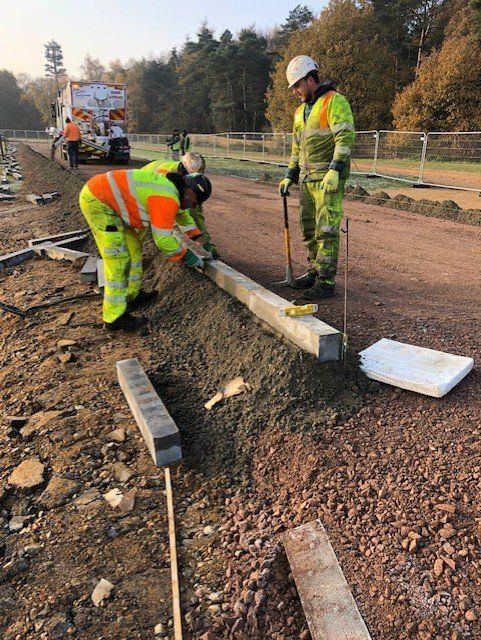The UK produces around 100 million tonnes of waste every year, and a lot of this rubbish ends up in landfill sites. As waste decomposes, it releases methane and carbon dioxide (CO2) and these greenhouse gases have a significant negative impact on our environment.
Methane and carbon dioxide make up 90 to 98% of landfill gas, so it’s important that we take steps to reduce how much waste we send to landfill each year.
On top of that, our recycling systems are getting more and more efficient, so there is a recycling option available for so many products – but not if they are bunged in ‘general waste’ and carted off, to pile up in landfill.
Many of us are already making conscious efforts to recycle more, buy less plastic packaging, and shop for clothes second-hand, but there are always extra steps you can take. If you’d like to reduce the amount of waste produced by your home or business, read on for some changes, small and large, you can make.
Plastic waste takes hundreds of years to decompose in landfill sites, and loose plastic bags can cause harm to wildlife in our oceans. Get into the habit of carrying a reusable recycled plastic or cloth bag each time you go to the supermarket, to reduce the amount of plastic bags you use.
TIP: Keep spare bags by the door or in the boot of your car so that they’re easier to remember and you always have one to hand.
Only a small percentage of materials that are produced are completely non-recyclable. Keep an eye on the labelling of the packaging you buy, and vote with your wallet by refusing to buy things packed in or made from non-recyclables.
TIP: here’s a short list of materials that are hard or impossible to recycle: waxed paper, plastic straws and cutlery, pizza boxes, bubble wrap, paper plates, napkins or towels, clingfilm, tissues, kitchen rolls, aluminium foil, dirty food packaging (make sure to rinse it and recycle it!), styrofoam, and thermosetting polymers such as Bakelite, Melamine and polyester.
Food waste is a huge problem in UK households, and research shows that 70% of the food we throw away is edible. Taking the time to plan your meals for the week is one of the best ways to be more efficient and waste less food. Your approach to food and cooking will really impact the way you go about this – whether you only buy ingredients you need for recipes, or you only create recipes using what you already have in the fridge, freezer and cupboards.
TIP: Batch cook meals for the freezer if ingredients are close to going off, or even simply freeze ingredients – too many apples for example can be chopped up and frozen ready for a crumble, or carrots can be diced up ready to go in a stew, soup, or pasta sauce.
If you have a garden or outside area, setting up a compost bin instead of throwing it in the bin is a great way to kill two birds with one stone – get rid of your food waste responsibly and create compost for your garden for free! Compost is packed full of nutrients which are beneficial to your garden, so everyone wins.
TIP: Consider a Bokashi composting bin, which can take all food waste – even raw or cooked meat and dairy products, which you wouldn’t usually put in a garden compost.
If you’re fed up with that pile of junk mail by the door, take a few minutes to cancel any unnecessary subscriptions, or ask for emails instead. The same goes in the office; think carefully before printing something and consider emailing documents instead of printing them off.
TIP: Opt for e-tickets for any events or travel to minimise your printing outlay.
If you’re taking on a home improvement project or a bigger waste-creating undertaking, there are several strategies you can implement from the beginning in order to minimise your waste.
Clever design and planning means that this off-cut of wood could be designed to work there, for example.
TIP: use standardised dimensions in your design to minimise material waste and specify modular or pre-fab techniques where possible to reduce onsite waste.
Order your materials in the precise quantities you’ll need, through diligent planning designing and measuring. Bear in mind the environmental burden of each material, as some will be more sustainable than others, and try to keep the range of materials you use to a minimum so there is less wastage of each.
TIP: Try to source materials from suppliers running take-back programs for any excess materials, or try to find materials secondhand
Make sure to separate waste where necessary if you’re recycling at home. If the waste levels you’re creating are large, procure a skip – we will go through your waste and recycle anything that can be recycled.
TIP: separate your waste as you go rather than lumping it together, so that disposing of it doesn’t become a monumental task.
Most responsible skip hirers will be committed to going through your skip waste and recycling everything that it’s possible to recycle – without you having to separate it. We’re committed to recycling materials and reducing waste here at Hazell and Jefferies, which is why we’re proud to operate a recycling centre from an Environmental Agency Registered Waste Management Centre. That’s why a skip might be the perfect option for your DIY project – you’re likely to end up recycling many more of the materials than you might manage if you had to go through them by hand on a domestic level, plus you don’t have to work out the best recycling locations for each material and separate recyclables from non-recyclables.
Based near Benson, Oxfordshire, we offer skip hire and recycled aggregates for both domestic and commercial customers, and will sort through each skip to ensure as much waste is recycled as possible. For more information about any of our recycling services, give us a call today or visit our website.

